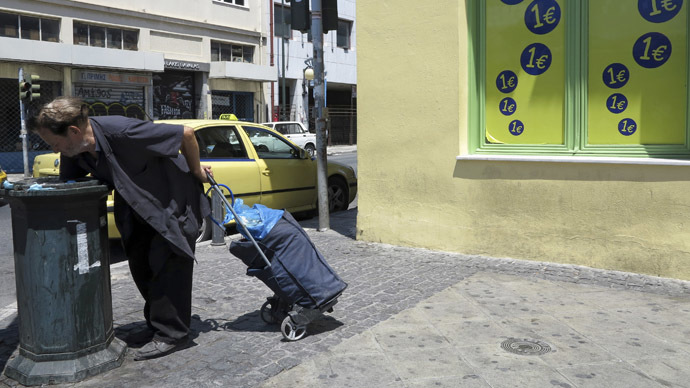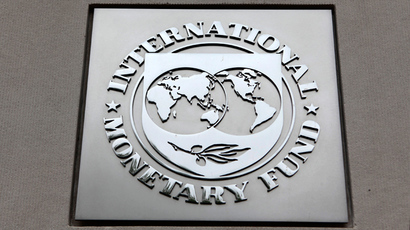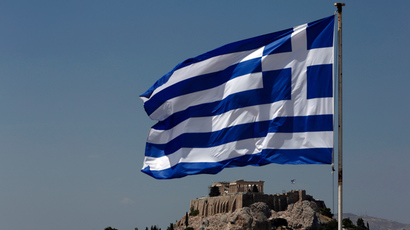Greeks 40% poorer than in 2008

Greeks are nearly 40 percent poorer than 5 years ago, with disposable incomes down by a third since the country entered into recession. Financial struggles linger after the 2008 crisis,and the government austerity measures haven't yielded promised growth.
Gross disposable incomes fell 29.5 percent between the second quarters of 2008 and 2013, the ELSTAT statistics service said on Tuesday in a report. Adding in cumulative consumer price inflation over the same period takes the decline close to 40 percent.
Workers' compensation has fallen 34 percent since the second
quarter of 2009, according to the ELSTAT report. The government,
under strict pressure to reduce the ballooning budget deficit,
has cut social benefits by 26 percent.
Stability has not returned to Greece, an economic recovery has
been slow, if not elusive. The IMF estimates the Greek economy
will contract 4 percent in 2013 before showing signs of
recovery in 2014.
The economic suffering has made saving nearly impossible for average citizens, with the households putting away 8.7 percent less in the second quarter, 2 percent year-on-year. Domestic consumption has been squeezed out by austerity measures.
Greece’s crisis, which has haunted the economy for 6 years, has forced it to dismantle and privatize its state assets to meet its austerity targets under the international bailout plan.
Greece has received over $315 billion (240 billion euros) since
2010 from Troika lenders, but still is buried in debt- which
exceeds 160 percent of GDP. Greece’s inability to ‘exit’
recession has put it at odds with Troika lenders, which are
moving towards approving a third bailout for 2014, which is very
unpopular with EU taxpayers, who feel they being hit by the
burden of their southern neighbors debt.
Unemployment has hit record highs - and
nearly 1.37 million are jobless, the highest rate among any EU
country. 55.1 percent of people under 25 are without a job.













